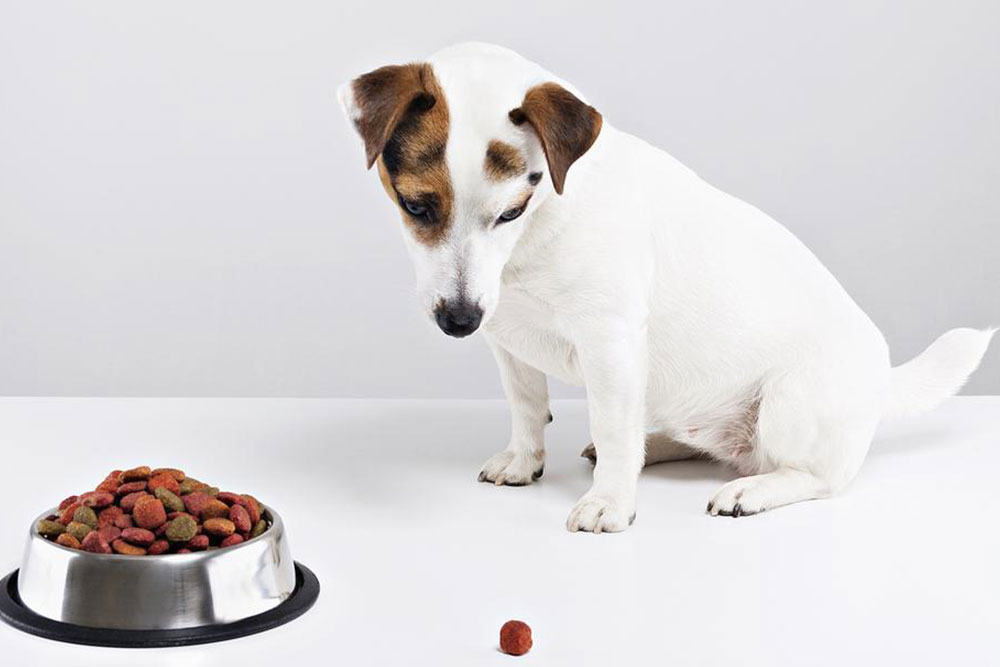Identifying Key Signs of Poisoning in Dogs and When to Seek Veterinary Help
This comprehensive guide details the early signs of poisoning in dogs, highlighting symptoms, potential toxins, and when to seek emergency veterinary care. Recognizing symptoms such as vomiting, neurological issues, and bleeding signs can save your pet’s life. Preventative tips emphasize pet-proofing your home and yard to avoid accidental poisoning incidents. Quick response and professional diagnosis are crucial for successful treatment. Stay informed and vigilant to keep your furry friends safe from harmful substances that could jeopardize their health.

Understanding How to Recognize Symptoms of Poisoning in Dogs
Dogs are curious animals that often explore their environment by chewing, licking, or ingesting a variety of objects, plants, and substances. While this natural curiosity can lead to delightful moments, it also exposes dogs to potential poisoning risks. Recognizing the early signs of poisoning in dogs is crucial for timely intervention, which can be lifesaving. Poisoning in dogs can stem from a range of sources, including toxic plants, household chemicals, medications, or even certain foods that are safe for humans but toxic to pets. Therefore, owners need to be well-versed in the various symptoms associated with poisoning to ensure quick and effective action.
Common signs of poisoning in dogs include vomiting, diarrhea, lethargy, abrupt loss of appetite, and strange behavior such as tremors or seizures. Blood in stool, bruising, or nosebleeds can also indicate internal bleeding caused by toxins. Additionally, dogs may experience difficulty urinating, abnormal heart rhythms, or irregular heartbeat, all of which suggest serious poisoning effects that require immediate veterinary attention. Recognizing these signs early can significantly improve the prognosis for poisoned dogs, emphasizing the importance of pet owners being alert and knowledgeable about potential symptoms.
Specific Symptoms That Indicate Poisoning in Dogs
Excessive Drooling: Often a sign of nausea or mouth irritation caused by toxins like certain plants or chemicals. Foaming at the mouth may also occur.
Sudden Drop in Appetite: This initial behavioral change can be one of the earliest indicators that your dog is unwell due to poisoning.
Coordination Problems: Difficulty walking, dizziness, or staggering can point to neurological effects, especially if toxins like xylitol (found in sugar-free gum and peanut butter) are involved.
Vomiting and Diarrhea: Common responses to ingesting poisonous substances, often accompanied by abdominal pain or discomfort.
Nasal Bleeds and Bruising: Signs of internal bleeding, possibly due to exposure to anticoagulant rodenticides or certain plants such as horse chestnuts.
Different Types of Poisoning and Their Symptoms
Neurological Symptoms
Neurological signs such as seizures, tremors, or disorientation may arise from exposure to toxins like strychnine, tobacco, certain medications (aspirin, antidepressants), or recreational drugs like marijuana. Household chemicals such as drain cleaners, dishwasher detergents, or flea repellents can also impact the nervous system, leading to abnormal behavior, loss of coordination, or coma.
Plant-Related Poisoning
Some plants, such as horse chestnuts and buckeyes, contain neurotoxins that can impair nerve function, causing symptoms like weakness, tremors, or paralysis. Many ornamental plants are toxic to dogs if ingested, leading to severe neurological or gastrointestinal reactions.
Heart-Related Toxicity
Ingesting certain plants like oleander, milkweed, jimson weed, or mountain laurel can cause irregular heartbeats, arrhythmias, or cardiovascular collapse. Common signs include lethargy, collapse, or rapid heartbeat.
Anemia and Bleeding Disorders
Poisoning from rat poisons (anticoagulants), garlic, onions, or certain plants can cause blood clotting issues, resulting in bruising, nosebleeds, blood in stool, and pallor. These symptoms indicate serious internal bleeding, necessitating immediate veterinary care.
Gastrointestinal Toxicity
Consumption of trash, toxic plants (ivy, holly), or forbidden foods like chocolates, lead-based paints, or certain plants such as chinaberry, iris, poinsettia, and Daphne can cause vomiting, diarrhea, abdominal pain, and loss of appetite. Such symptoms suggest gastrointestinal irritation or damage.
Kidney and Liver Damage
Eating plants like caladium, pigweed, Easter lily, or philodendron can impair kidney function, leading to increased urination difficulty or even kidney failure. Liver damage may result from ingestion of medications like acetaminophen or plants such as tansy, ragwort, and rattlebox, which lead to jaundice, vomiting, or lethargy.
How Veterinarians Diagnose and Treat Poisoning
When presented with a suspected poisoning case, veterinarians typically induce vomiting to retrieve and analyze the ingested substance. This procedure can help identify the toxin based on the vomit's appearance and content. In some cases, lab tests of vomit, stomach contents, or blood samples are necessary to confirm the specific poison involved.
Effective treatment often involves administering specific antidotes if available, supportive care such as IV fluids, medications to control symptoms like seizures, or detoxification procedures. Timeliness is critical; the sooner the dog receives veterinary attention, the higher the chance of recovery. Owners should never attempt to induce vomiting at home unless directed by a veterinarian, as some toxins can cause additional damage if improperly handled.
Preventive Measures and Owner Guidance
Preventing poisoning begins with dog-proofing the home environment. Keep toxic plants, chemicals, medications, and forbidden foods out of reach. Educate yourself about common household items and plants that pose risks to pets. Regularly inspecting your yard for toxic plants or hazardous materials is also essential. In case of accidental ingestion, immediate veterinary consultation can be life-saving.
Additionally, creating an emergency plan with your veterinarian or local pet poison control hotline can prepare you for quick action. Always store chemicals, pesticides, and medications safely in secure cabinets and avoid leaving trash or food leftovers accessible to dogs. Remember, prompt recognition of poisoning symptoms and swift veterinarian intervention are the keys to ensuring your dog’s safety and health.





